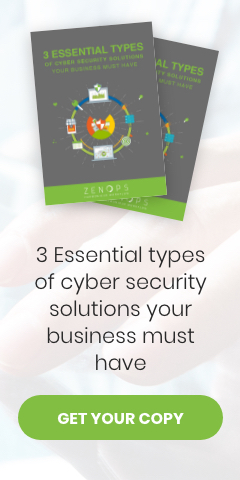It’s one thing for hackers to gain unauthorized access to confidential data, but it’s another matter if it’s encrypted. Modern encryption systems convert data into indecipherable code that would take years for hackers to crack with brute force attacks. Paired with good employee training and multifactor authentication to add an extra layer of security, encryption is about as foolproof as it can be for keeping your data safe.
One of the most common questions regarding encryption is what sort of data needs should be encrypted. Due to the vast amounts of data that today’s companies routinely deal with, it’s often not practical to encrypt every byte of data. Encrypting all data associated with an application or service is complicated because it consumes processing power and bandwidth, which means it can be difficult to handle encryption of all information in real time without hindering performance. The best solution is to prioritize the following data types:
Personally identifiable information (PII)
Personally identifiable information refers to any type of information (either in digital or printed form) that someone can use to uniquely identify the subject. Naturally, since this information generally belongs to your customers, it’s subject to various compliance regulations pertaining to privacy and security. PII may include things like driver’s license numbers, contact details, and social security numbers that could potentially be used for identity theft.
For the sake of information security, PII should be broadly defined as any information that a customer or an employee has provided about themselves, including things like payment details and patient health records. This data should only be stored or transmitted over secured connections with advanced end-to-end encryption, especially if you’re in a highly regulated industry like healthcare or finance.
Intellectual property (IP)
Intellectual property includes anything that’s subject to copyright. If it’s your own property, as opposed to something belonging to a third party, you’re free to handle it in whatever way you want. However, due to the sensitive nature of IP, and the fact that it has a lot of value to those who create it, it’s probably something you’ll want to keep under wraps.
The same applies to any confidential business data that pertains to business strategy, unannounced product launches, and anything else that’s valuable to your company. If hackers manage to steal your intellectual property, they can end up making a profit off your back and cause you to lose your edge over the competition. That’s exactly how pirated content works, hence the need to take extra security measures to protect IP with military-grade encryption.
It’s also a good idea to limit access of unencrypted IP to only key decision makers and executives. This way, you avoid the risk of internal leaks within your company.
Research and development data
Although research and development information might also be included under the umbrella of intellectual property, it’s important enough to address separately. This sort of information is also harder to protect, because it’s often widely distributed around the company and with third parties such as suppliers and technology vendors. Any information leak could lead to severe damage to your business, so it’s important to have a robust security infrastructure around it so that no unauthorized third parties will be able to steal it. The same applies to product release documents, which can cause severe damage if leaked by an employee or stolen by an attacker before launch.
Every company owns a proverbial treasure trove of confidential information, which is why the team at Zenops provides multilayered business security to help you keep your digital assets safe. Call us today to get end-to-end encryption solutions and protect your business.


